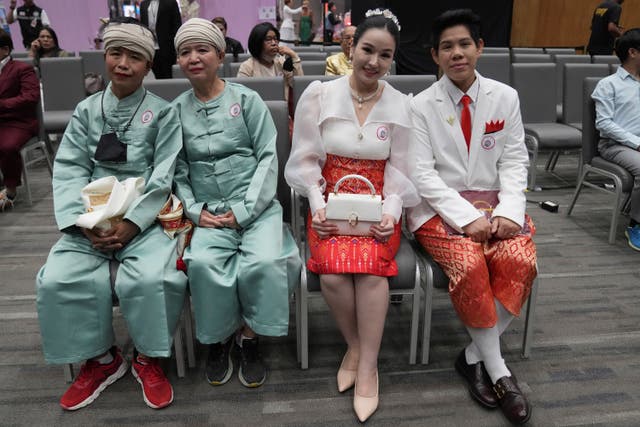Same-sex couples flock to make marriages legal as Thailand changes law
Thailand is the first country in Southeast Asia and the third place in Asia to legalise same-sex marriage.

Hundreds of LGBT+ couples in Thailand were expected to make their wedded status legal on Thursday, the first day a law took effect granting them the same rights as heterosexual couples.
The enactment of the Marriage Equality Act makes Thailand the first country in Southeast Asia and the third place in Asia to legalise same-sex marriage, after Taiwan and Nepal.
Marriage registration is customarily done at district offices, but on Thursday around 300 couples were expected to complete the formalities at a day-long gala celebration in an exhibition hall at a shopping mall in central Bangkok. Hundreds more were predicted to register in less fancy circumstances around the country.
The marriage equality bill, which sailed through both houses of parliament, amended the Civil and Commercial Code to change the words “men and women” and “husband and wife” to “individuals” and “marriage partners.” It is supposed to open up access to full legal, financial and medical rights for LGBTQ+ couples.

Partners will have equal rights and responsibilities in dealing with joint assets, tax obligations and deductions, inheritance rights and survivor benefits.
Thailand has a reputation for acceptance and inclusivity and thousands of people from around the world attend the annual Bangkok Pride parade.
But rights advocates have struggled for decades to pass a marriage equality law in a largely conservative society where members of the LGBT+ community say they face discrimination in everyday life, although they note that things have improved greatly in recent years.
“The enforcement of the marriage equality law is proof that regardless of our gender, we all share the same basic human rights in every aspect under Thai law,” said Kullayahnut Akkharasretthabudh, 38, a real estate owner whose partner is Juthatip Suttiwong, 24, a chef.
“It also paves the way for other countries in Asia, highlighting the importance of recognizing each other’s human values and enabling everyone to live.”
Bangkok’s city government has said that it organised workshops for staff of all its district offices who are in charge of handling marriage registration.
They included lectures raising awareness about gender diversity and guidance on how to properly communicate with those who come for the service. The Interior Ministry has offered similar guidance.
“It’s like a missing piece of the jigsaw,” Bangkok deputy governor Sanon Wangsrangboon said at one of the workshops earlier this month. “Society is ready. The law is getting ready. But the last piece of the jigsaw is the understanding from officials.”





